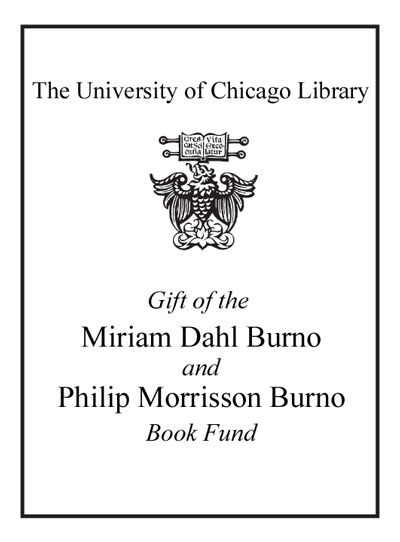Review by Booklist Review
When small-town girls defy their families and flee to make their fortunes in the big city, we know they will suffer, and no good will come of it. Except, that is, for the joy of reading about their adventures, as in Nattel's new novel, which adds definitely to the pleasures of the coming-of-age genre, female division. Craving independence, Nehama steals from her sisters for passage to turn-of-the-century London. But the Jewish girl has no English. She is quickly pressed into prostitution, losing her sense of smell along the way, but escapes into the East End's dangerous streets, appositely named Frying Pan Alley and such. She befriends another, pregnant runaway, Emilia, whose child she adopts. Each young woman goes her separate way, with Emilia's daughter the linchpin between the two. Set when not to be new . . . was nothing, in a time of bourgeois decadence and The Yellow Book, with its stories of syphilis, slums, and illegitimacy, The Singing Fire portrays an era as compelling as its characters. --Whitney Scott Copyright 2003 Booklist
From Booklist, Copyright (c) American Library Association. Used with permission.
Review by Publisher's Weekly Review
Two determined Jewish runaways strive for better lives in chaotic turn-of-the-century London in Nattel's rich and lovingly written second novel (after 1999's The River Midnight). Seventeen-year-old Nehama, who arrives from Poland in 1875, is quickly tricked into prostitution and brutalized by her boss, the squire. She escapes that sordid life-which Nattel unflinchingly, chillingly portrays-when she's taken in by a young couple in Frying Pan Alley. She becomes a skilled seamstress and eventually marries a kind tailor who knows little of her past. In 1886, Emilia, privileged but pregnant and unwed, flees her cruel father and weak mother back in Minsk. Nehama's and Emilia's paths converge when Nehama prevents the ruthless brothel owner who enslaved her from doing the same to Emilia. Emilia, who's posing as a widow, lodges with Nehama, but soon breaks under the drudgery of London's ghetto life. Leaving her newborn daughter with Nehama, who is unable to bear children after two miscarriages, Emilia decamps to London's Soho, where she works as a shop girl and catches the eye of Jacob, a successful Jewish writer who thinks the "golden-haired and gray-eyed" Emilia is a gentile. Both women are haunted by the pasts they conceal from their men, and sometimes comforted by beneficent ghosts: into this story of struggle and assimilation, Nattel skillfully weaves the guardian spirits of Nehama's grandmother and Emilia's father's first wife. The pacing is leisurely, and the prose is lovely, leavened by subtle humor and infused with intelligence. Agent, Helen Heller. (Feb.) (c) Copyright PWxyz, LLC. All rights reserved
(c) Copyright PWxyz, LLC. All rights reserved
Review by Library Journal Review
Hot on the heels of her much-acclaimed first novel, The River Midnight, Nattel's new achievement is a sensory joy. Vividly drawn sounds and sights bring to life London's 19th-century Jewish ghetto. The story revolves around Nehama and Emilia, a Polish and a Russian immigrant, respectively, who had fled to London to start life anew. While both indeed remake themselves, facing formidable challenges, they do not necessarily find better lives. Each is accompanied by a spirit-guardian who turns up periodically with sotto voce comments about current problems and solutions. The two characters are linked by Gittel, the daughter born to Emilia but adopted by Nehama. Nattel offers a poignant glimpse into a long-gone world, fraught with danger, hardship, poverty, and the daunting boundaries of class, gender, and geography. Highly recommended.-Ellen R. Cohen, Rockville, MD (c) Copyright 2010. Library Journals LLC, a wholly owned subsidiary of Media Source, Inc. No redistribution permitted.
(c) Copyright Library Journals LLC, a wholly owned subsidiary of Media Source, Inc. No redistribution permitted.
Review by Kirkus Book Review
Another marvelous tale steeped in Jewish history and culture, from the author of The River Midnight (1999). The Yiddish theater and the teeming streets of London's Jewish ghetto in the last quarter of the 19th century form a vibrant backdrop for Nattel's two strong-minded heroines. Nehama arrives from Poland in 1875 and falls into the clutches of the Squire, who turns the 17-year-old virgin into a prostitute and beats her savagely when she tries to run away. Even after she escapes and marries the goodhearted tailor Nathan, she's convinced that her seamy past is to blame for her miscarriage. So when Emilia, daughter of an affluent but sadistic Minsk notary, turns up in London in 1886, just as unprotected as Nehama was--and very pregnant as well--the rough-edged East Ender rescues the new arrival from the pimps prowling the docks. Emilia flees, leaving behind her infant daughter to be raised by Nehama and Nathan. Their struggles are contrasted with Emilia's comfortable life after her brief stint as a fashionable shopgirl attracts the admiration of successful hack writer Jacob Zalkind, whom she allows to believe she's a gentile. The author paints powerful portraits of two very different women who both hide the truth about their past from their husbands, while also tracing the age-old immigrant conflict between allegiance to ethnic roots and yearnings for the tantalizing freedoms offered in a new society. The ghosts of Nehama's grandmother and the first wife of Emilia's hateful father watch over the action; the Toronto-based author deftly folds these magical elements into the essentially realistic storyline. Her prose is just as finely balanced, rich in humor that's never simply for laughs (Emilia suffers "the ordinary fortune of every woman from the day that Eve was pushed out of her garden and realized that she must find a good address"), and filled with passages of heartbreaking beauty that acknowledge the permanent scars left by tragedy but affirm the healing powers of love and self-knowledge. Beautifully written, strongly imagined, and deeply felt. Copyright ©Kirkus Reviews, used with permission.
Copyright (c) Kirkus Reviews, used with permission.
Review by Booklist Review
Review by Publisher's Weekly Review
Review by Library Journal Review
Review by Kirkus Book Review

